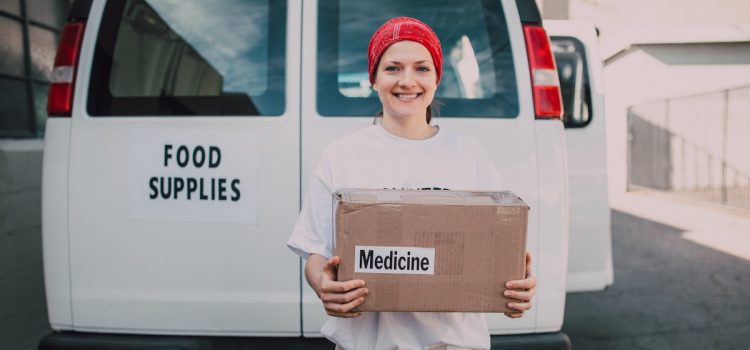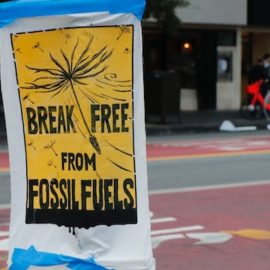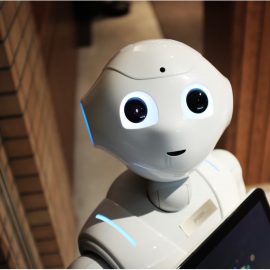

This article is an excerpt from the Shortform book guide to "Braiding Sweetgrass" by Robin Wall Kimmerer. Shortform has the world's best summaries and analyses of books you should be reading.
Like this article? Sign up for a free trial here.
What are the benefits of caring about all living beings? How does mutual care impact the Earth and the economy?
In Braiding Sweetgrass, Robin Wall Kimmerer claims that mutual care is important for all living beings’ wellness. She describes the ways that mutual care supports the long-term vitality of life on Earth, feelings of abundance and wealth, and a sustainable economy.
Let’s dive deeper into the benefits of caring.
1. Long-Term Vitality
From the author’s perspective, the first of three benefits of caring is the long-term survival of humans and the environment because our well-being (human and non-human) is highly interdependent. In this sense, taking care of the environment is not about altruism, but rather sustaining the things that sustain us in return. For example, if we contribute to soil health by applying compost, reducing tillage, and growing cover crops, we ensure that the soil remains fertile to keep growing food for many generations.
(Shortform note: Kimmerer argues that mutual care ensures our long-term survival, individually and collectively. However, practicing mutual care as an individual, or even at the community level, does not guarantee that others will do the same. For example, at the global level, if one country implements mutual care by reducing carbon emissions that cause environmental harm, this change would likely not be significant enough to prevent the onset of more fires, droughts, and other extreme weather events. Therefore, this particular benefit of mutual care relies on its widespread adoption.)
2. Feelings of Abundance and Wealth
Another benefit of a culture of mutual care is experiencing feelings of abundance and wealth when you look at the physical world. Through the lens of mutual care, entities that were simply objects before, become gifts. You feel wealthy because there are insects that pollinate the plants that feed you, clouds that bring rain, and endless other gifts like this given to you every day. On the other hand, in a culture of individualism, your wealth consists of the commodities you own, and it is easy to feel that it is never enough compared to other people’s.
(Shortform note: This benefit of mutual care is difficult to prove with concrete evidence. Feelings of abundance and wealth are subjective, and even concepts like “happiness” are difficult to study due to people’s varying interpretations. However, one study confirms that comparing yourself to others based on finances has a negative impact on your emotional well-being.)
3. Sustainable Economy
Another benefit of mutual care is that it supports a sustainable economy. A “gift economy” based on mutual care is sustainable because its goal is to support life in general, rather than to accumulate wealth at the expense of others. In a gift economy, there are no commodities or property, and every person has a responsibility to take care of the earth’s gifts, including plants, animals, water, soil, and other people.
For example, all living organisms on Earth need water to survive, and in an economy based on mutual care, humans would not pollute or hoard water. Doing so would contradict mutual care by harming other beings and restricting access to a vital resource. In this scenario, clean water remains abundant to all organisms indefinitely. In a capitalist economy, humans and whole ecosystems suffer from lack of clean water because humans own some of the water sources, profit from the commodification of water, and profit from industrial processes that make water toxic. This is unsustainable because the availability of clean water is diminished over time.
An Alternative Model for a Sustainable Global Economy
Kimmerer’s discussion of a gift economy based on mutual care includes a general argument for sustainability, but it does not include much detail on what this economic system would look like on a global scale. Doughnut Economics by Kate Raworth makes a similar argument that an economy based primarily on growth (and therefore intensive extraction of natural resources) is unsustainable. However, rather than creating a gift economy where there are no commodities at all, Raworth recommends specific policies to reform the global economy and de-emphasize growth.
The central idea of the “doughnut economy” is to grow the economy enough to support the basic needs of all humans, but not so much that the economic growth exceeds the planet’s ability to regenerate resources that support life on Earth. Raworth’s conception of the post-growth economy requires the following changes: a negative-interest currency, tax reform, and breaking the culture of consumerism.

———End of Preview———
Like what you just read? Read the rest of the world's best book summary and analysis of Robin Wall Kimmerer's "Braiding Sweetgrass" at Shortform.
Here's what you'll find in our full Braiding Sweetgrass summary:
- What plants, Indigenous worldviews, and science can teach us about restoring balance
- Why we must recognize our interdependence on others and the environment
- Strategies to help you practice mutual care in your own life






